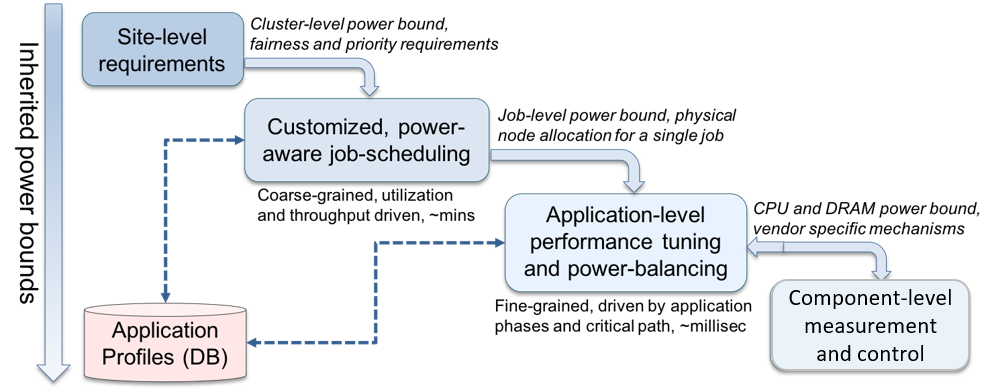HPC PowerStack Initiative
The HPC PowerStack Initiative brings together experts from academia, research laboratories and industry in order to design a holistic and extensible power management framework, which we refer to as the PowerStack. The PowerStack explores hierarchical interfaces for power management at three specific levels: batch job schedulers, job-level runtime systems, and node-level managers. The HPC PowerStack community meets regularly, details of which can be found at their website.
The ECP Argo Project is one of the key contributors to the HPC PowerStack Initiative. HPC PowerStack also closely collaborates with the following community efforts:
Each level in the PowerStack will provide options for adaptive and dynamic power management depending on requirements of the supercomputing site under consideration, and would be able to operate as an independent entity if needed. Site-specific requirements such as cluster-level power bounds, user fairness, or job priorities will be translated as inputs to the job scheduler. The job scheduler will choose power-aware scheduling plugins to ensure compliance, with the primary responsibility being management of allocations across multiple users and diverse workloads. Such allocations (physical nodes and job-level power bounds) will serve as inputs to a fine-grained, job-level runtime system to manage specific application ranks, in-turn relying on vendor-agnostic node-level measurement and control mechanisms.
The figure below presents an overview of the envisioned PowerStack, which takes a holistic approach to power management. Variorum is a reference example that represents the vendor-agnostic node-level interface, which can integrate with high-levels in the PowerStack as and when needed, which we describe in Integrating with Variorum.
